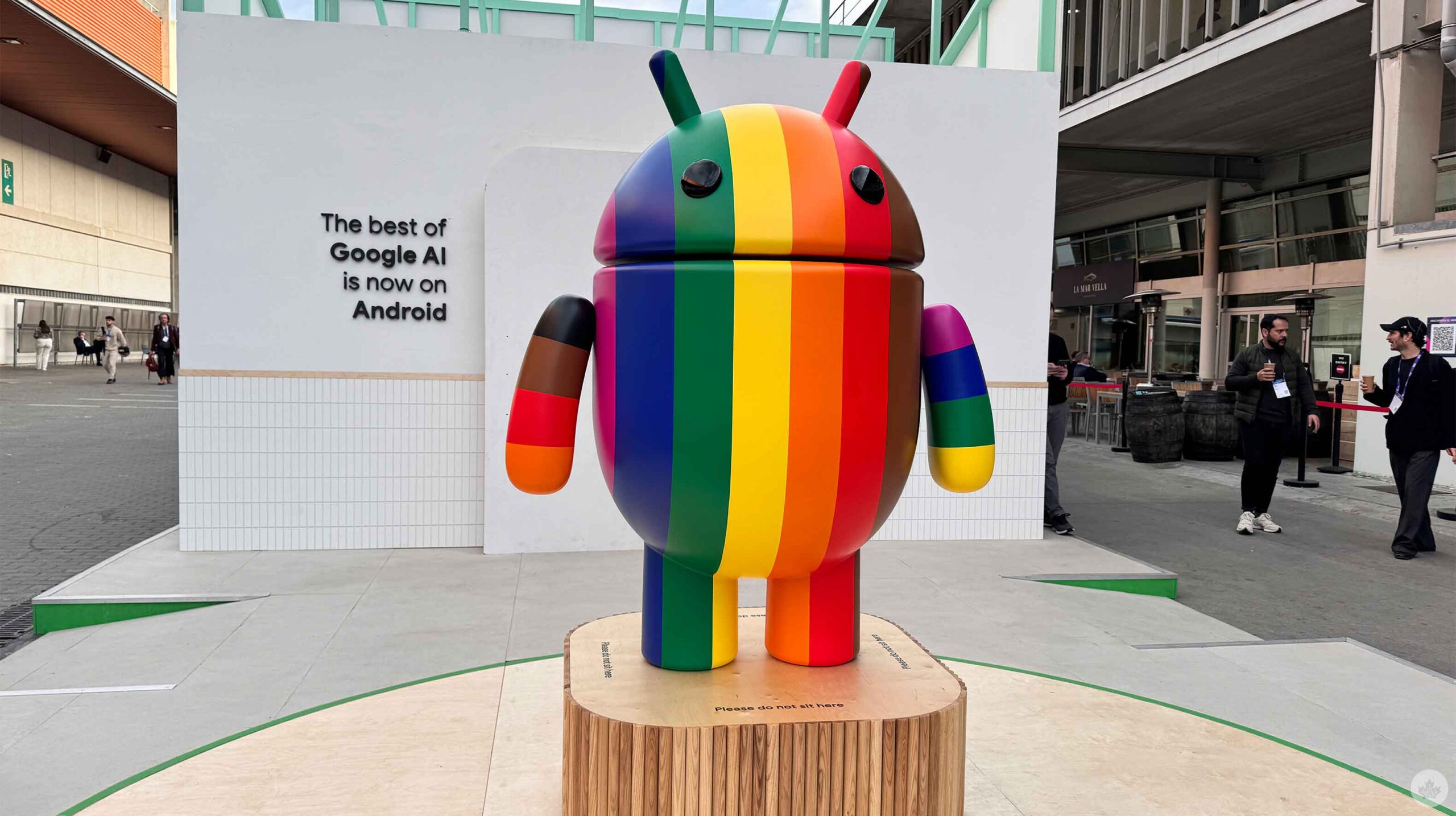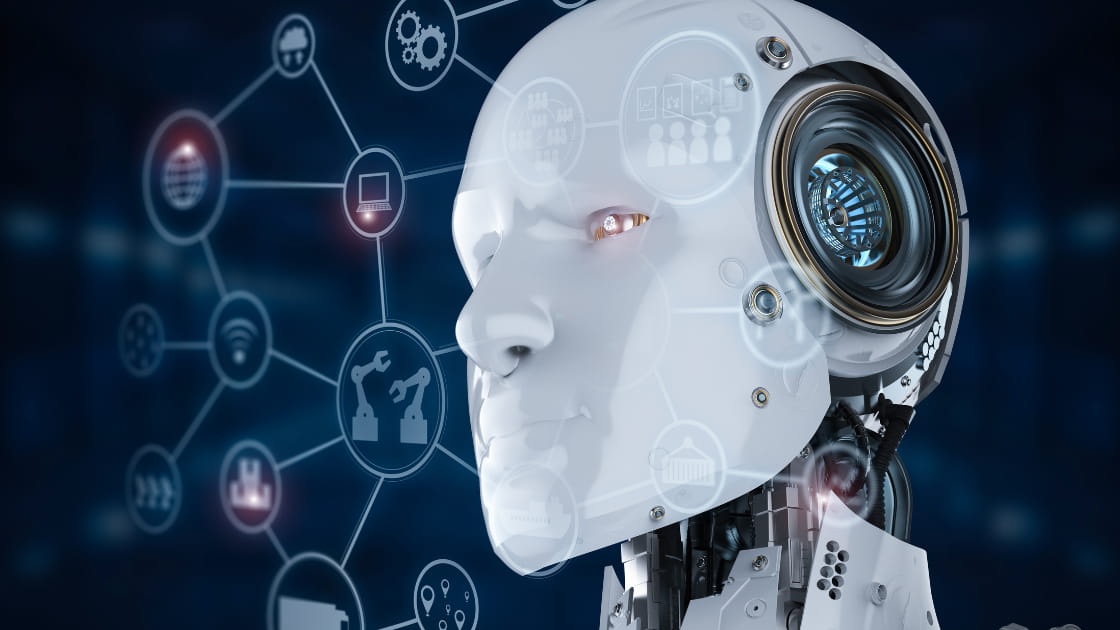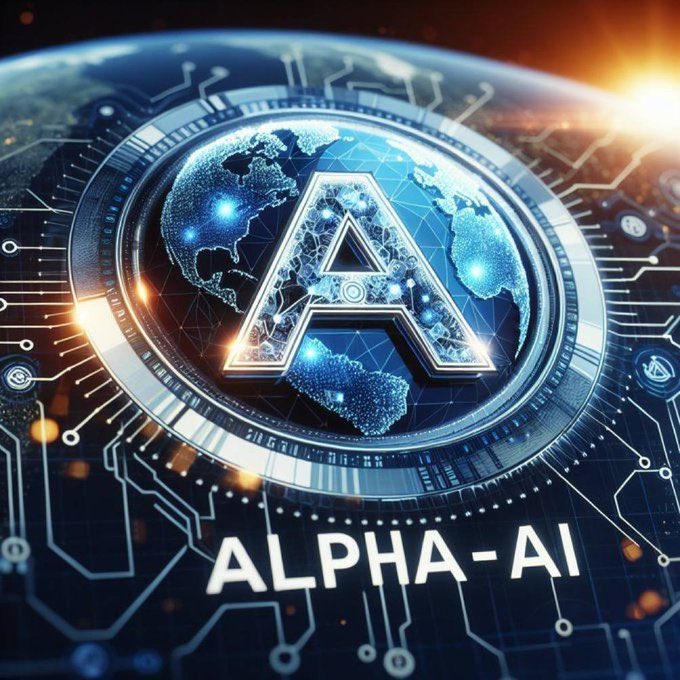
Subscribe to our free Newsletter
💌 Stay ahead with AI and receive:
✅ Access our Free Community and join 400K+ professionals learning AI
✅ 35% Discount for ChatNode
Welcome to The AI Report!
.png)

Google I/O 2025 unveiled ground-breaking AI features
Google I/O 2025 unveiled groundbreaking AI features, enhancing search with AI Mode, improving natural language processing, and integrating AI into Google Workspace for streamlined workflows and personalized experiences.


Key Takeaways:
- Google I/O 2025 unveiled ground-breaking AI features that will redefine the user experience across platforms.
- Key announcements focused on integrating AI more deeply into Google Search, enhancing accuracy and personalization.
- AI-driven tools aim to streamline workflows, offering smarter suggestions and real-time data analysis.
- Emphasis on ethical AI development highlights Google's commitment to transparency and user privacy.
- New collaborative AI features promote seamless teamwork and communication within Google Workspace apps.
- The future potential of these new AI innovations is foundational to Google's long-term strategy.
Contents
- Introduction
- Overview of Google I/O 2025
- Significance of AI Announcements
- Main Content
- New AI Features Overview
- AI Integration in Google Search
- Advancements in Natural Language Processing
- AI-Powered Tools for Developers
- Impact on Users and Developers
- Enhanced User Experience
- Opportunities for Developers
- Comparisons with Competitors
- New AI Features Overview
- Conclusion
- Summary of Key Announcements
- Future Implications for AI
Overview of Google I/O 2025

Google I/O is a landmark annual event for Google as it showcases its upcoming new products and features. I/O 2025 was no exception: Google debuted a plethora of ground-breaking AI-focused innovations during a 2-hour long segment, and demonstrated how they will redefine user experiences across all Google platforms.
Announcements
The event was packed with exciting announcements that highlighted Google's commitment to AI:
- AI-Powered Search: Google introduced a new AI-driven search experience that promises to deliver more accurate and contextually relevant results. This new feature leverages machine learning to understand user intent better.
- Enhanced Google Assistant: Improvements to Google Assistant include more natural language processing capabilities and a more intuitive user interface. These updates aim to make interactions more seamless and personalized.
- AI in Google Workspace: New AI features in Google Workspace are designed to boost productivity. These include AI-driven scheduling tools and advanced data analysis capabilities within Google Sheets.
For more details on these features, visit Google I/O 2025.
With these innovations, Google is setting a new standard in AI technology, emphasizing the importance of integrating intelligent systems into everyday tools. As these features roll out, users can expect a more enhanced and efficient digital experience.
Significance of AI Announcements
Google I/O 2025 has set a new benchmark in the tech world with its innovative AI announcements. The introduction of advanced AI features marks a pivotal moment for the industry, underscoring Google's commitment to innovation and enhancing user experience. These announcements not only redefine the future of AI but also highlight the potential impact on various sectors, including search technology.
During the event, Google unveiled an array of AI-driven enhancements designed to make searches more intuitive and personalized. These features aim to transform how users interact with search engines, offering more accurate and context-aware results. This transition to a more AI-centric approach signifies a shift in Google's strategy, focusing on leveraging AI to deliver smarter, more efficient solutions.
With these advancements, Google is poised to maintain its leadership in the AI space, setting new standards for competitors. The integration of AI into search functionalities is expected to revolutionize the way information is accessed and utilized, paving the way for a future where AI is seamlessly embedded into everyday digital interactions.
- Enhanced Search Capabilities: New AI algorithms promise to deliver more relevant search results by understanding user intent and context.
- Personalized User Experience: AI features will tailor search outcomes based on individual preferences and past interactions.
- Innovation in AI Technology: These announcements reflect Google's ongoing investment in cutting-edge AI research and development.
New AI Features Overview

- AI Integration in Google Search
The significance of AI announcements at Google I/O 2025 lies in their transformative potential for both users and the industry. With AI becoming increasingly central to technological advancements, Google's new features promise to enhance user experience and efficiency.
During the event, Google unveiled several groundbreaking AI features designed to redefine how users interact with search engines. By integrating AI into Google Search, the company aims to provide more intuitive, personalized, and contextually relevant results.
Key announcements include:
- Enhanced Search Algorithms: Leveraging AI to deliver more accurate and faster search results.
- Personalized User Experiences: Utilizing machine learning to tailor search outcomes based on individual user preferences.
- Voice-Activated Search: Improvements in natural language processing for better voice command recognition and responses.
These advancements position Google at the forefront of AI innovation, setting new standards for the digital search landscape. For more details, visit the official Google Search blog.
Advancements in Natural Language Processing
Building on the exciting announcements from Google I/O 2025, Google's advancements in Natural Language Processing (NLP) are set to revolutionize how we interact with technology. The integration of sophisticated AI systems into everyday applications enhances user experience and provides more intuitive interactions.
In the previous section, we explored how Google is embedding AI deeply into its search functionalities, enabling more personalized and accurate results. Now, we delve into the specific improvements in NLP that make these advancements possible.
- Enhanced Understanding: Google's AI can now comprehend complex queries, understanding context and nuance like never before.
- Real-time Translation: Instantaneous translation features are becoming more accurate, supporting more languages and dialects.
- Conversational AI: New models allow for smoother, more natural conversations with virtual assistants.
These NLP enhancements not only empower Google Search but also significantly improve applications across Google's ecosystem, from the Google Assistant to the Google Workspace apps. This innovation represents a significant leap forward in creating more human-like interactions with AI technology.
AI-Powered Tools for Developers

Building on the advancements in natural language processing, Google has unveiled a suite of AI-powered tools aimed at enhancing developer productivity and innovation, showcasing the company's commitment to integrating artificial intelligence into its ecosystem.
Developers can now leverage:
- AI Code Completion: A smart code assistant that predicts code snippets, reducing development time.
- AI Debugging Tools: Automated error detection and suggestions for faster troubleshooting.
- AI-Enhanced APIs: Seamless integration of AI models into applications, simplifying complex tasks.
These innovations reflect Google's dedication to fostering an environment where developers can harness AI to push the boundaries of what's possible.
Impact on Users and Developers
- Enhanced User Experience
Google's series of AI advancements promises to revolutionize both user interactions and developer capabilities. These features are set to redefine the search landscape, enhancing user experience with more intuitive, personalized results.
Users can expect more AI in everyday searches, with Google leveraging advanced machine learning algorithms to provide results that are not only more accurate but also contextually aware. This means that searches will become more predictive, offering answers even before the user completes their query.
For developers, the implications are equally significant. The new AI features introduced offer a robust set of tools that can be integrated into various applications, allowing for the creation of more intelligent and responsive software solutions. These tools will support developers in building applications that can learn and adapt over time, providing a more dynamic user experience.
Comparisons with Competitors
With the announcement of these new AI features, Google aims to redefine the landscape, setting new benchmarks in AI search capabilities and integration.
- Enhanced AI Search: Google's AI search enhancements promise faster, more accurate results, leveraging deep learning models that are unparalleled in the current market.
- Integration with Other Services: Unlike competitors, Google’s AI features seamlessly integrate across its ecosystem, from Google Workspace to Google Cloud, offering a cohesive user experience.
- Innovative Developer Tools: Google provides developers with cutting-edge tools, such as AI-driven APIs and SDKs, which are not only advanced but also easy to implement.
These innovations position Google as a formidable force in the AI domain. For more insights into Google’s AI advancements, visit the official Google I/O 2025 page.
Future Implications for AI

With Goolge's new developments, businesses and individuals can expect a more intuitive and efficient interface, paving the way for increased productivity and creativity. As AI becomes more integrated into daily life, its implications will extend beyond convenience, fostering a new era of digital transformation.
The potential for AI-driven solutions in various sectors, from healthcare to education, is immense. The ability to harness vast amounts of data and provide actionable insights will empower decision-makers, leading to smarter decisions and more sustainable outcomes.
As we look to the future, the role of AI in shaping society will be pivotal. Continued innovation and ethical considerations will be essential to ensure these technologies benefit humanity as a whole.
Google I/O 2025 FAQs
What are the new AI features launched by Google?
Google's latest AI features include enhanced natural language processing, advanced image recognition, and improved AI-driven search algorithms.
How will these AI features impact users?
These features aim to provide a more intuitive user experience, with personalized search results and smarter assistant responses, making daily tasks more efficient.
Are the new AI features available globally?
Yes, Google has rolled out these AI features globally, though some functionalities may be limited to specific regions initially.
Can developers access these AI technologies?
Developers can access Google's AI technologies through Google Cloud AI Platform, offering tools to integrate AI into applications.
What industries will benefit most from these AI advancements?
Industries such as healthcare, finance, and e-commerce are likely to see significant benefits from these AI advancements, enhancing data analysis and customer interaction processes.
Conclusion
In summary, Google's latest launch of major AI features marks a significant step forward in technological advancement. As discussed in previous sections, these features promise to enhance user experience and streamline various processes. With the integration of AI into its platforms, Google is not only aiming to improve efficiency but also to offer more personalized services.
Moreover, as highlighted earlier, the emphasis on user privacy and security ensures that these advancements do not come at the cost of user trust. This balance between innovation and privacy is a crucial aspect of Google's strategy.
In conclusion, Google's new AI features are set to revolutionize the way we interact with technology, providing smarter and more intuitive solutions. This launch is a testament to Google's commitment to pushing the boundaries of AI while maintaining a focus on ethical considerations.










.jpg)

.jpeg)
.jpg)
.jpg)




.jpg)


